Prostate Cancer Treatment Cost in India
Unlock Exclusive Discount : Your Gateway to Premium Healthcare with Medsurge India Health Value Card.

Unlock Exclusive Discount : Your Gateway to Premium Healthcare with Medsurge India Health Value Card.


Prostate cancer is the uncontrolled growth of abnormal cells in the prostate gland. The prostate gland is a part of the male reproductive system responsible for producing fluids that nourish and protect sperm from semen, and acts as a valve to control urine flow.
Prostate cancer treatment often involves surgery, where part or all of the prostate gland is removed to eliminate cancerous cells. Depending on the stage and severity, surgery may be combined with other treatments such as chemotherapy, radiation therapy, or hormone therapy for more effective and comprehensive care. Advanced techniques, including minimally invasive or robotic-assisted surgery, are now widely used, offering greater precision and faster recovery time.
The best option for prostate cancer treatment depends on the stage of cancer, its characteristics, and the overall health of the patient. Common effective treatments for localized cancer are surgery or radiation therapy, and for more advanced or metastatic disease are hormone therapy, chemotherapy, or targeted therapy. The best treatment is chosen after thorough evaluation.
Different types of prostate cancer surgery are:
Prostate removal surgery is beneficial for those whose cancer is localized to the prostate gland and has not spread to other parts of the body. It may also be recommended for those with severe, persistent urinary symptoms from an enlarged prostate when other treatments like radiation or hormone therapy are less effective. The goal of the surgery is to completely remove the cancer and prevent it from recurring.
On average, prostate cancer treatment cost in India ranges between $1400 and $13,000 (for international patients) and $600 to $9000 (for domestic patients). The cost may vary depending on various factors. Leading hospitals in India are equipped with modern diagnostic and surgical facilities and staffed by highly experienced urologists and oncologists for the best treatment outcome. Patients receive safe, precise, and well-managed care, along with personalized support throughout their treatment and recovery journey.
Prostate cancer surgery in India is performed using advanced techniques such as open, laparoscopic, or robotic-assisted procedures, depending on the patient’s condition and cancer stage. The following table provides an overview of the approximate costs for different types of prostate cancer surgery.
| Surgery Type | Approx. Cost in India (USD) |
| Radical Prostatectomy (Open Surgery) | $4,000 to $8,000 |
| Laparoscopic Prostatectomy | $3,000 to $7,500 |
| Robotic-Assisted Prostatectomy | $6,000 to $12,500 |
| Transurethral Resection of Prostate (TURP) | $1,500 to $4,500 |
The cost of prostate cancer surgery in India depends on several factors, including:
Additional Factors for International Patients
Know more:- Prostate Cancer Treatment in Artemis Hospital
1) Dr. Niranjan Naik
2) Dr. Vinod Raina
3) Dr. Ankur Bahl
4) Dr. Prasad E
5) Dr. Rajesh Mistry
Read More – Top 10 Oncologists in India
1) Indraprastha Apollo Hospital New Delhi
2) Max Hospital Saket, New Delhi
3) Fortis Hospital Gurgaon
4) Kokilaben Dhirubhai Ambani Hospital Mumbai
5) MGM Healthcare, Chennai
India differs from other countries in several ways when it comes to medical treatment:
If you are looking for cost-effective prostate cancer treatment in India, Medsurge India will guide you in several ways, including:
Whether you’re from India or abroad, we ensure a seamless, stress-free, and affordable journey.
With careful planning and the right guidance, patients can optimize their care while reducing overall expenses. Through our Health Value Card, patients can enjoy exclusive benefits, special offers, priority care, and dedicated support services, ensuring a seamless and budget-friendly treatment experience.
The prostate cancer treatment cost in India depends on the type and complexity of the surgery, hospital facilities, surgeon expertise, post-operative care, and whether additional treatments like radiation or chemotherapy are required.
Also Read:- Chemotherapy for Prostate Cancer
Prostate cancer can be treated with surgery, radiation therapy, hormone therapy, chemotherapy, or robotic-assisted procedures, depending on the stage and the patient’s condition.
Recovery varies by procedure. Minimally invasive or robotic-assisted surgery usually allows faster recovery, while open surgery may require a longer hospital stay and follow-up care.
Success rates are generally high, especially in accredited hospitals with experienced urologists and oncologists. Outcomes also depend on the stage of cancer and overall patient health.

Medical Oncologist
Associate Consultant
10+ years
Meitra Hospital, Calicut, Kerala
View Doctor
Radiation Oncologist
Senior Consultant
10+ years
Apollo Proton Cancer Centre, Chennai
View Doctor
Surgical Oncologist
Senior Consultant
8+ years
Meitra Hospital, Calicut, Kerala
View Doctor

Medical Oncologist
Consultant
15+ years
Care Hospitals HITEC City
View Doctor
Surgical Oncologist
Sr. Consultant & Associate Clinical Director
20+ years
Care Hospitals HITEC City
View Doctor
Surgical Oncologist
Senior Consultant
13+ years
Care Hospitals HITEC City
View Doctor
Surgical Oncologist
Senior Consultant & Head of the Department
22+ years
Care Hospitals HITEC City
View Doctor
Surgical Oncologist
Senior Director
15+ years
Fortis Hospital, Vasant Kunj, Delhi
View Doctor
Medical Oncologist
Consultant
12+ years
Fortis Hospital, Vasant Kunj, Delhi
View Doctor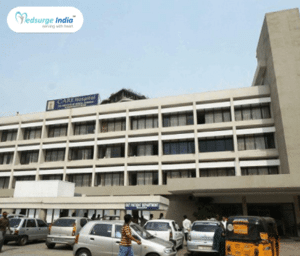
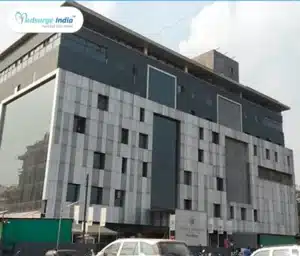
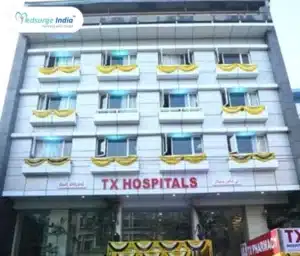
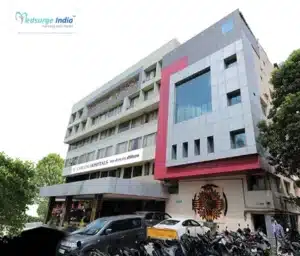



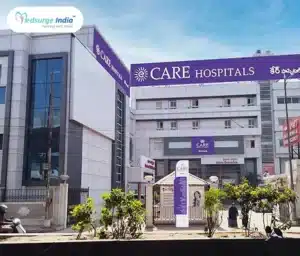
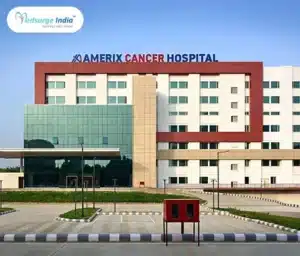
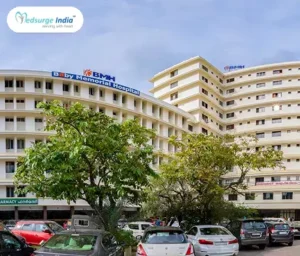
By using our site, you agree to our Terms and Conditions, Privacy Policy and Refund Policy. Medsurge India provides reliable healthcare information and treatment options to support informed decision-making. Our content is designed to support and complement the guidance of your treating doctor, helping you feel informed and confident throughout your healthcare journey. We also Accept International Payments.

Copyright © 2025 NSM ONLINE SOLUTIONS PRIVATE LIMITED. All rights reserved.